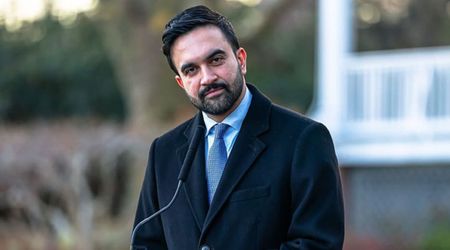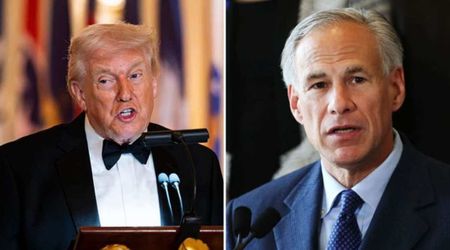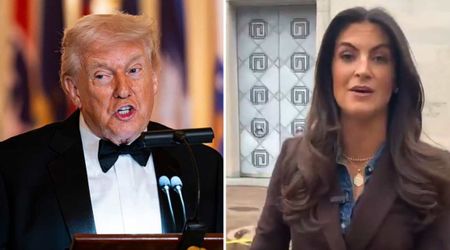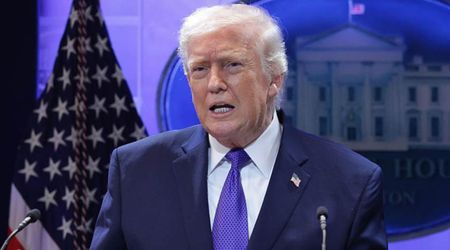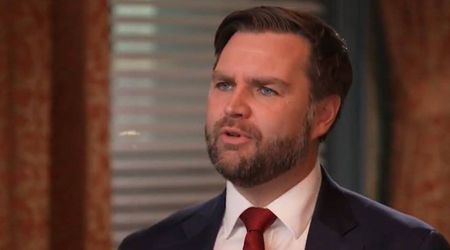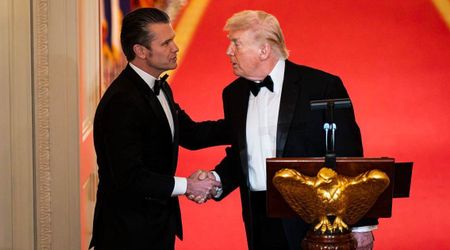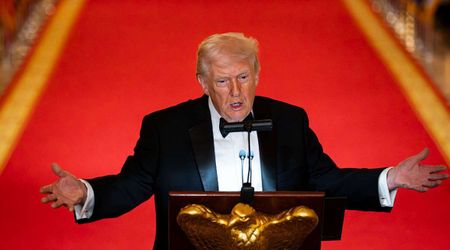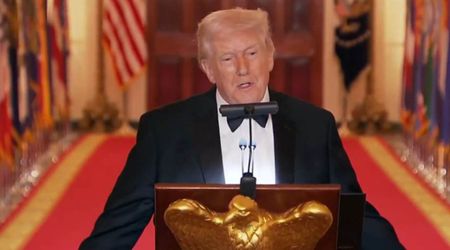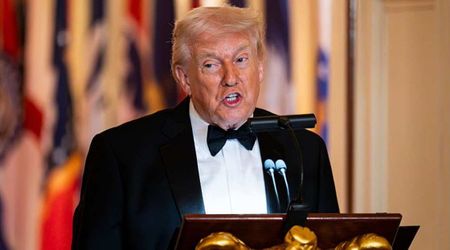7 takeaways from Donald Trump’s win in Supreme Court ruling to keep him on Colorado ballot
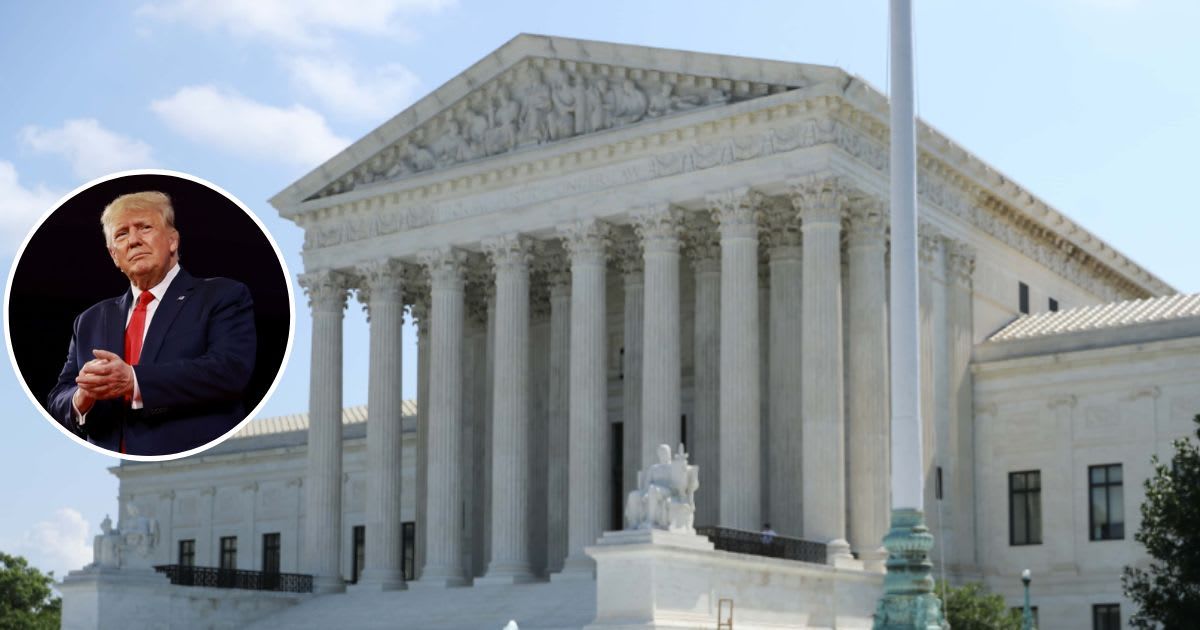
7 takeaways from Donald Trump’s Supreme Court win

On Monday, March 4, the Supreme Court unanimously dismissed the attempts of certain states to bar former President Donald Trump from running for the White House again. However, the SCOTUS was divided on the matter of whether anyone else could do so and on what grounds. The court did not address Colorado's central argument that Trump should be deemed ineligible to run for the US presidency due to his alleged involvement in the January 6, 2021, insurrection. While the 77-year-old GOP presidential frontrunner at this time, celebrated the ruling as a "big win," his challengers criticized it as a "narrow, technical” offramp that fails to capture the full story. The court's decision effectively puts an end to the attempts by several states to prevent Trump's candidacy by invoking the rarely-used constitutional provision that prohibits individuals who "engaged in insurrection" from holding office. However, the decision may also lead to further electoral uncertainties, as more state officials could be disqualified under the provision, potentially setting up a constitutional conflict should the MAGA strongman secure his bid for the presidency. Trump is currently facing four separate criminal trials, and the Supreme Court's role in the legal process is yet to be determined. Here are the key points coming out of Monday’s Supreme Court decision.
1. Supreme Court questions technicalities rather than debating Trump’s involvement in Jan 6 events

The Supreme Court made a significant decision on Monday by overturning the Colorado Supreme Court ruling from December, last year, that deemed Donald Trump ineligible to be the United States president. The Colorado court’s ruling was based on the insurrection clause, Section 3, of the 14th Amendment, which was enacted to prevent former Confederates from serving in government after the Civil War. This decision will also prevent efforts to remove Trump from the ballot in other states like Illinois and Maine. If the Supreme Court had let the Colorado ruling stand, it could have led to a wave of litigation that might have left the former president disqualified in many states. However, the SCOTUS avoided addressing the politically charged issue of whether Trump played a role in the Jan 6 attack on the Capitol. Monday’s verdict mainly focuses on the technical, procedural question of who gets to decide an election challenge under Section 3. All nine justices agreed that it's the Congress's job to decide, but a narrower majority of five ruled that it can only be done through legislation. This exposes significant splits underneath the unanimous majority and points toward the uncertainty the ruling creates. Unlike in 2000, when the court split along ideological lines in stopping Florida's recount of the presidential contest, this time, all nine justices agreed that a “state-by-state patchwork” of decisions on Trump's candidacy must be avoided.
2. Supreme Court rendered unanimous decision despite differences

The recent ruling by the Supreme Court has raised concerns about the possibility of disqualifying a presidential candidate for engaging in insurrection. While the court rejected the idea of unelected judges disqualifying a candidate who has received a significant number of votes, it left open the possibility of Congress determining whether a candidate is disqualified for such conduct. The majority opinion, delivered by the conservative wing of the court, suggested that Congress could implement Section 3 of the 14th Amendment through legislation, which would be subject to judicial review, which means the court reserves for itself the right to have the final say. The dissenting liberal justices, however, argued that the ruling went beyond what was necessary to prevent states from acting unilaterally on Section 3, and also stressed the need for a clear interpretation of the provision. While legal experts are divided on the implications of the ruling, the majority and the dissenting justices agreed on the importance of unanimity, despite their differences.
3. The Supreme Court didn’t comment on whether Trump is an insurrectionist

The oral arguments on the events of January 6, 2021, at the Capitol Building, prompted intense debate amongst the justices, with little focus on whether the actions of the day constituted an insurrection, or whether Donald Trump played a significant role in the events that transpired. The Colorado Supreme Court had previously concluded, “Trump did not merely incite the insurrection…he continued to support it.” In contrast, Trump's legal team maintained that no insurrection occurred and that the former president did not incite any unlawful conduct. Despite the merits of these claims, the justices did not address them in their final decision. Additionally, Trump's legal team contended that the anti-insurrectionist provision of the Constitution does not apply to the presidency or former presidents, such as Trump, who have neither previously held office nor swore an oath to "support" the Constitution. Rather Trump took the presidential oath where he swore to “preserve, protect, and defend” the Constitution.
4. Verdict prevents states from blocking Trump from ballots

The lawyers who lost the case on Monday said that states may not be able to pursue similar lawsuits this year to stop Trump from being on state ballots. Noah Bookbinder, president of Citizens for Responsibility and Ethics in Washington, said, “We’re still digesting this. What they seemed to say is that there can’t be enforcement in court unless Congress specifically authorizes it through legislation.” The justices who agreed with the decision left the possibility of a federal lawsuit open, but it would be challenging to get Congress to act in an election year with a Republican-controlled House and a Democratic-led Senate. The court's ruling means that Section 3 cannot be used against federal officials without Congressional action. However, states can still use it against their own officials, as there is a history of such actions after the Civil War. This has started again in the post-January 6 era. The first disqualification under Section 3 in over a century happened in 2022 when a New Mexico court removed Couy Griffin, who was convicted of entering the Capitol grounds on January 6 while leading a group called "Cowboys for Trump," from his rural county commission. The group that brought that case, Citizens for Ethics and Responsibility in Washington, next filed the Colorado case against former president Trump. They want to continue filing Section 3 cases against lower-level Jan 6 participants.
5. The decision may prevent Congress from rejecting electoral college votes for Trump

Legal experts analyzing the Supreme Court's decision have indicated that Congress may not be able to block a candidate from taking office by denying their Electoral College votes during election certification. The high court's ruling appears to suggest that only congressional legislation can enable the enforcement of the 14th Amendment to prevent an individual who has engaged in insurrection from assuming office. As per the verdict, "The Constitution empowers Congress to prescribe how those determinations should be made." The concurring opinion of three justices, namely Sonia Sotomayor, Elena Kagan, and Ketanji Brown Jackson, further underscores that the majority opinion appears to necessitate the creation of tailored legislation to block an insurrectionist, instead of being enforced under general federal statutes. Legal experts opine that if this interpretation is correct, it would prevent congressional Democrats from following Trump's 2020 strategy of trying to alter the 2024 outcome if he wins the majority of Electoral College votes. The Electoral College elects the president by casting votes for the winning candidate in each state, which is proportionate to the state's representation in Congress. Trump is currently facing federal charges in Washington, DC, and state charges in Georgia, partly due to his 2020 strategy of persuading Congress to reject Electoral College votes for President Joe Biden in key swing states. Jason Murray, a lawyer who argued the Colorado case before the Supreme Court said, “It does seem to be at least implicit in the ruling today that trying to enforce Section 3 through other means than specifically enumerated legislation would raise serious legal questions under the decision today,” adding. “We’re continuing to look at that.”
6. Donald Trump declares Supreme Court decision a 'big win'

Former President Donald Trump hailed the decision as a "Big win for America!!!" and praised the unanimous ruling as "unifying and inspirational." The challengers, while disappointed with the outcome, emphasized that their lawsuit aimed not only to win at the Supreme Court but also to raise awareness of the Constitution's power and authority, which the court acknowledged. Eric Olson, one of the attorneys representing six Colorado voters who disputed Trump's eligibility, expressed his satisfaction with the court's recognition of the Constitution's significance. "The other goal of our suit was to make sure that everyone knows that this portion of the Constitution exists, has power and force, which the court acknowledged that it did," Olson said. However, Trump is already looking beyond this victory and focusing on the upcoming Supreme Court case, where the justices will decide whether he can be prosecuted for his efforts to overturn the 2020 election. Trump told Fox News Digital that the court's ruling on his immunity for actions taken while in office is "equally important for our country" as the current decision. Furthermore, in April, the Supreme Court will hear a case challenging the federal prosecutors' approach to the Jan 6 insurrection, which could also impact the charges against Trump for his alleged role in overturning the 2020 election.
7. Biden campaign dismisses Supreme Court verdict as irrelevant

The Department of Justice did not comment on the Colorado case while it was being contested. In contrast to past high-profile decisions involving federal issues, the Supreme Court did not seek input from the executive branch. Following the judgment, a senior Biden campaign official rejected it as irrelevant. Quentin Fulks, principal deputy campaign manager, told MSNBC, "We don't really care. It's not the way we've been planning to beat Donald Trump. Our focus since day one of launching this campaign has been to defeat Donald Trump at the ballot box."

